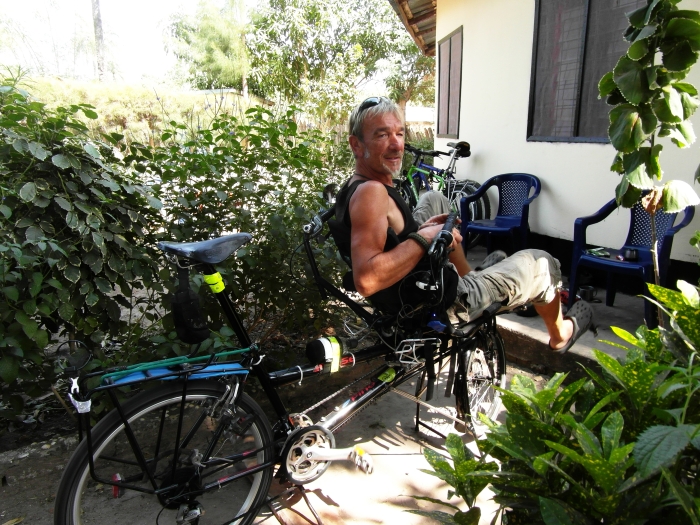Cycle touring in the 21st century. The age of the gadget, where special moments are uploaded in seconds and where every landscape, every town and every beach can be shared with friends. You can even ‘share’ your dinner on social media and your friends get to ‘like’ it, despite having no idea how it tastes.
Whether this technology is liberating or just gets in the way is debatable, but what’s undeniable is that it adds weight to your load. Netbooks, tablets and smart phones, GPS, cameras, headcams and the rest, all ride for free on your latest journey to get away from it all. And not content with draining the power from your legs, they also drain themselves.
How to charge gadgets is often one of the concerns of the modern cycle tourist. Go off-grid with solar, hub dynamo and usb charger, mini wind generator? Or rely on hotels and campsites for a mains supply?
Riding to The Gambia, we did both. The albergues in Spain meant the panel and the usb/bottle dynamo were rarely used. Morocco, with a mix of hotels and wild/formal camping meant a mix of power sources. The same was true of Mauritania and Senegal, but for the two months we were in The Gambia we were self-sufficient.
We carried a Solar Gorilla 10 watt folding solar panel plus a cheap USB charger married to a Busch & Muller bottle dynamo. This combo kept our smart phone, gps, camera and Google Nexus charged, with the smart phone being used for 3G web surfing daily. Running off the bottle dynamo, we could browse the web continuously without losing battery life.
One of the many positive attributes of the Hase Pino was it’s ability to serve as a static charger. With two kick stands fitted, we could raise both wheels off the ground, sit comfortably on the stoker seat and pedal while we surfed. An internet cafe on wheels.
The benefits of off-grid chargers probably depends on where you’re touring and where you plan on staying. In Africa in a tent (or in an off-grid village) self-sufficiency on power makes perfect sense and the extra weight of the solar panel or the hub dynamo is probably worthwhile, especially if you feel the need to share your dinner with people thousands of miles away.


